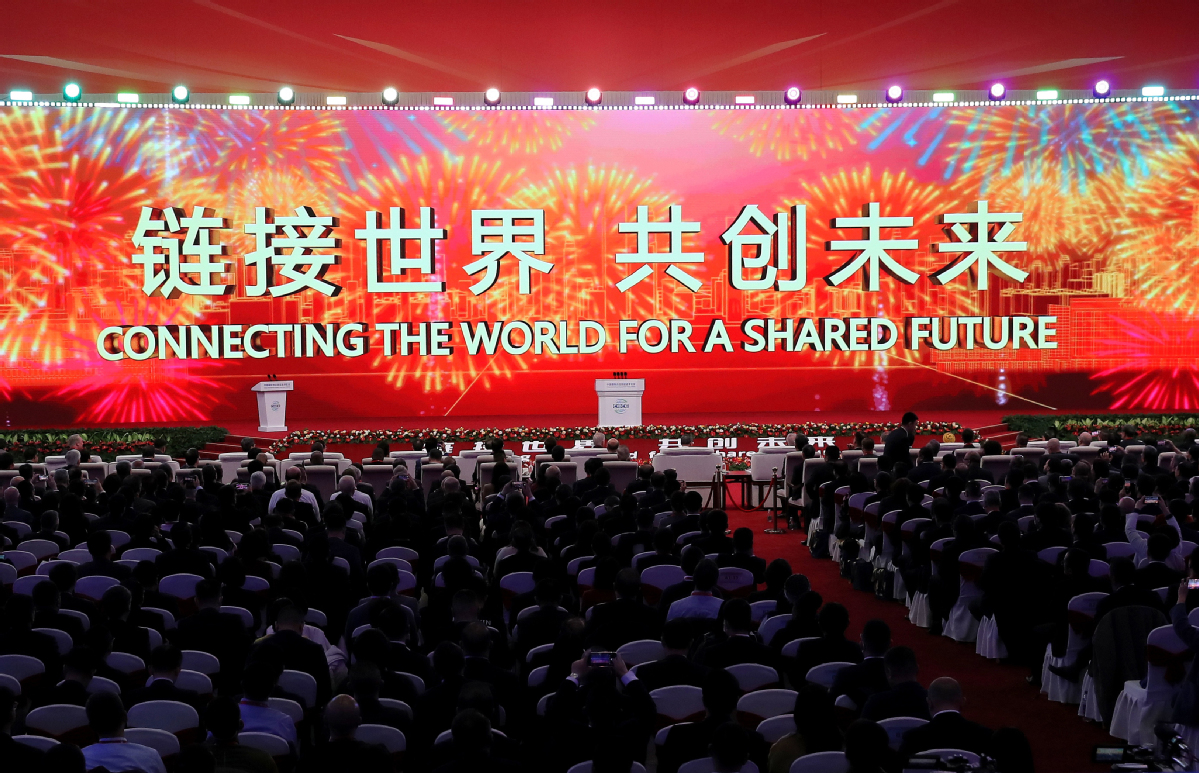US companies' presence at CISCE vote of no to decoupling


The first China International Supply Chain Expo (CISCE) was held here with US companies making up a solid 20 percent of the foreign exhibitors.
The enthusiastic participation of American businesses not only drives home the fact that supply chains between China and the United States are tightly interwoven, but also sends a resounding message that US businesses are voting with their feet to oppose decoupling.
Just hours before the CISCE kicked off, the White House announced the launch of the Supply Chain Resilience Center, aiming to reduce the nation's reliance on what it labels as "high-risk foreign supplies".
The US maneuver is a covert effort to advance its long-held agenda of decoupling. However, if one takes a look at the substantial number of American companies participating in the expo, it is evident that the concept of decoupling fails to resonate with the masses.
The true yearning of people across global industries, including American enterprises, lies in forging a worldwide industrial supply chain ecosystem with extensive international engagement, complementary advantages, and mutual benefits.
By hosting the CISCE, China is endeavoring to galvanize global efforts in response to the call.
As the world's first national-level supply chain expo, the CISCE aims to foster connectivity among the upstream, midstream, and downstream sectors, facilitate dialogue among enterprises of varying sizes, promote collaboration between industry, academia, and research, and enable interaction between domestic and foreign enterprises.
Many Fortune 500 companies and prominent players in the global supply chain landscape have converged at the expo. Foreign exhibitors from 55 countries and regions accounted for a substantial 26 percent of the total.
The significant presence of American enterprises is one of the highlights of the expo. Leading US companies like Amazon, Apple, Tesla, Intel, HP, Qualcomm, and Honeywell are leveraging the expo as a springboard to launch new products, exhibit innovative ideas, and forge partnerships.
The immense benefits resulting from integrating with the Chinese supply chain are what attracted these American enterprises. Grace Tao, vice president of Tesla, said the Tesla Gigafactory in Shanghai can assemble a new Model 3 or Model Y in less than 40 seconds.
"The Shanghai factory delivered products in its first year of operation and has produced over two million electric vehicles in just over three years," Tao said, crediting the stunning speed to the company's profound fusion with the Chinese supply chain.
By hosting the CISCE, China is demonstrating its commitment to further engaging with the global supply chain system. Over the years, China has been a key player in ensuring the global industrial and supply chains run smoothly. Through its unwavering dedication to opening its door wider to the world, the world's second-largest economy will unleash a plethora of market opportunities, collaboration prospects, and innovation avenues for global supply chain cooperation.
In contrast, the deliberate attempts by some countries to sever the global supply chain not only contradict economic laws and historical trends but will ultimately lead to self-inflicted harm. The presence of foreign companies at the expo are a joint call for upholding and promoting stability of the global supply chain.


































